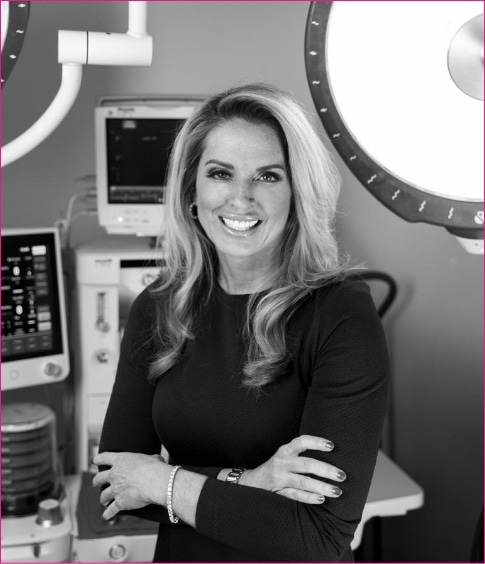The rise of medspas and a recent liposuction death in Florida in a young 37 year old nurse bring to light several issues our specialty is confronted with. Read the news story here.
Liposuction performed by untrained and non-certified doctors and paraprofessionals can lead to detrimental and possibly even fatal outcomes that can be prevented. This case illustrates that point, as a doctor who had only gone to an 18-hour training course in liposuction and was actually an occupational medicine physician performed the procedure on the Floridian woman. The procedure was performed in an unlicensed and non-accredited facility labeled “Tanning Salon” on the outside. Reports show that she likely had seizures from a lidocaine overdose, and she was also given Propofol in the medspa/tanning salon, which is against state law. Propofol is a powerful intravenous sedative and anesthetic agent (the one that killed Michael Jackson), and lidocaine is a local anesthetic that is injected into the subcutaneous fat, often mixed with saline to dilute it, prior to liposuction to cut down on bleeding and for pain control. The dose for a particular human body weight has to be specifically calculated so that overdose and fatality doesn’t ensue no matter what type of case is being performed. It is concerning because an occupational medicine doctor would likely have no specialty training in this particular facet of surgery.
A lack of oversight of medspa facilities has played a part in this young woman’s death after liposuction, as facilities that are not licensed or accredited by state and federal organizations such as JCAHO for hospitals and AAAASF for offices and small facilities should not be able to have practitioners of any kind administering powerful drugs such as Propofol and administering injections of lidocaine. Because this facility had no business performing these procedures, they had no back up emergency crash cart with medications in it to help resuscitate a person who may have complications from these types of drugs and surgeries.
Our state and federal governments are missing the ball in their lack of regulation of physicians, paramedical professionals and technicians performing cosmetic procedures and surgery without proper certification and credentialing. Patient safety is a major issue especially with physicians practicing outside of the scope of their training. Plastic surgery should be done by board-certified plastic surgeons, delivering babies by obstetricians, and workplace injury evaluations by occupational medicine doctors. Surgical training takes many years and requires a vigorous board certification and continuing education process. Israel has laws in place that enforce physicians to practice within their scope of training and advertise in keeping with their training and board certification; the US government should take cues from them.
Prospective patients also need to wise up and educate themselves by doing research on their treating physician. The discount that people get for untrained professionals to do their surgery or procedure is quickly offset by the complications that can be extremely costly, even to their life. Things to look in a plastic surgeon are for are board certification by the American Board of Plastic Surgery, experience with the procedure being performed, and hospital privileges at a local tertiary care center should complications arise that need to be expeditiously treated.





